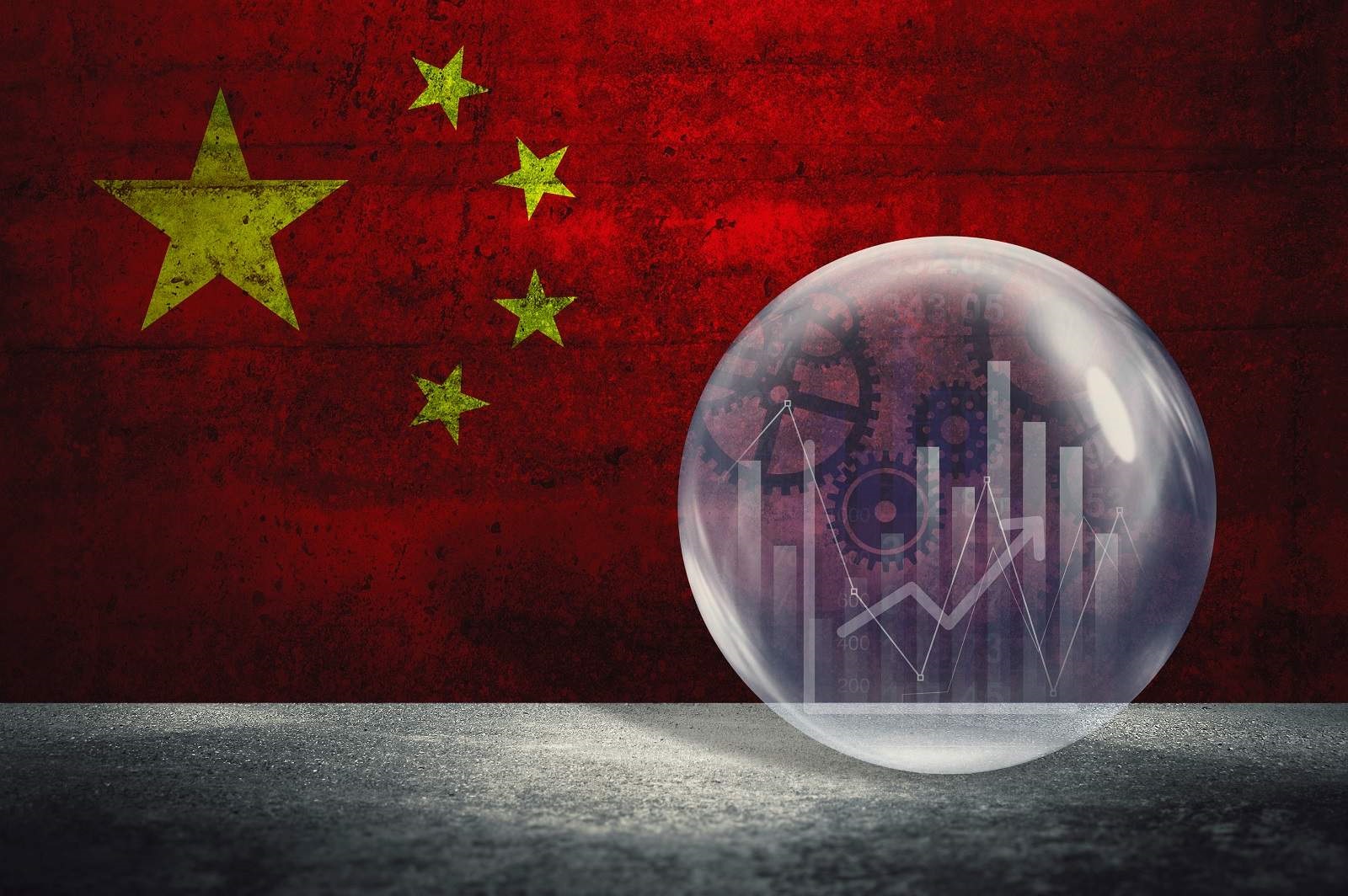Unraveling Prosperity: The Potential Impact of China’s Economic Turmoil on Your Investment Portfolio

Unraveling Prosperity: The Potential Impact of China’s Economic Turmoil on Your Investment Portfolio
In recent times, the global economic landscape has been marked by its interconnectedness. One powerhouse that plays a significant role in this intricate web is China, often touted as the world’s manufacturing hub and a driving force behind international trade. However, the dragon’s economy has recently experienced ripples of turbulence, and this could potentially cast shadows of uncertainty over your investment portfolio.
China’s economic prowess has been a beacon of growth for decades, propelling it to the forefront of the global stage. Its manufacturing prowess, consumer market, and technological advancements have drawn the attention of investors worldwide, leading many to allocate a portion of their portfolios to China-focused assets. Yet, as recent events highlight potential fractures in this economic giant’s façade, investors are starting to ponder how China’s economic turmoil might trickle down to impact their financial holdings.

The Fragile Foundations
China’s economy has been a double-edged sword for global investors. On one hand, the massive production capabilities and the country’s emergence as a major consumer market offer alluring opportunities. On the other hand, China’s heavily managed economy and opaque regulatory environment have raised concerns about unpredictability.
A power word that strikes at the core of these concerns is “contagion.” It’s a word that has haunted financial markets ever since the global financial crisis of 2008. Contagion refers to the spread of financial troubles from one market to another. China’s economic turmoil, if not contained, has the potential to send shockwaves throughout the global economy, disrupting markets and affecting investment portfolios.
The Evergrande Conundrum
A prime example of China’s economic turmoil hitting headlines is the plight of Evergrande Group, one of China’s largest real estate developers. Evergrande’s massive debt load and struggles to meet its financial obligations have stoked fears of a possible default. This word alone sends shivers down investors’ spines. A default by a company of Evergrande’s size could trigger a chain reaction, leading to decreased investor confidence, reduced lending, and a potential slowdown in China’s real estate market – a crucial pillar of its economy.
Trade Woes and Global Impact
China’s economic turmoil doesn’t stay confined within its borders. The global interconnectedness of supply chains means that a disruption in it’s production can reverberate across the world. This is where the power word “interdependence” comes into play. Countries and companies around the globe rely on China for parts, components, and finished goods. Any significant slowdown in China’s manufacturing could lead to shortages, increased production costs, and potential price hikes for consumers. This domino effect can be detrimental to companies’ profitability, thereby impacting your investment portfolio.
Regulatory Uncertainty
China’s regulatory actions have gained substantial attention lately, particularly in sectors like technology and education. A power word that captures the essence of this situation is “whiplash.” The swift and sometimes unpredictable changes in regulations have left investors in these sectors on edge. For instance, the crackdown on tech giants like Alibaba and Didi has not only led to significant drops in stock prices but has also created an atmosphere of uncertainty regarding future government actions. Such uncertainty can lead to decreased investor confidence and, subsequently, affect the value of investments in your portfolio.
Diversification Dilemma
Investment portfolios are often constructed with diversification in mind – the idea that spreading investments across different sectors and regions reduces risk. However, it’s economic turmoil poses a challenge to this strategy. The power word here is “imbalance.” If a significant portion of your portfolio is heavily invested in China-related assets, a downturn in the country’s economy could tilt your portfolio off balance. Overexposure to one market can amplify the impact of negative events and potentially lead to larger losses.
Mitigating the Impact
While the specter of it’s economic turmoil casts a shadow, it’s not all doom and gloom. There are strategies to mitigate the potential impact on your investment portfolio.
1. Diversification: Reassess your portfolio’s allocation to ensure it’s not overly concentrated in China-related assets. Spreading investments across various countries and industries can help reduce risk.
2. Stay Informed: The power word here is “awareness.” Keep a close watch on China’s economic indicators, regulatory changes, and global market trends. Being informed can help you make timely adjustments to your portfolio.
3. Hedging Strategies: Consider incorporating hedging techniques, such as options or inverse ETFs, to protect your portfolio against potential downturns.
4. Long-Term Perspective: While short-term fluctuations can be unnerving, remind yourself of your long-term investment goals. Economic turmoil often passes, and maintaining a steady course can lead to better outcomes.
Conclusion
As the global economy continues to evolve, the potential impact economic turmoil on your investment portfolio is a topic that demands attention. The power words “caution” and “strategize” hold significance in these uncertain times. While China’s economic challenges can send ripples through financial markets, a well-informed and diversified approach to investing can help you weather the storm. By staying aware, adaptable, and patient, you can navigate the waves of uncertainty and strive for a prosperous financial future.




